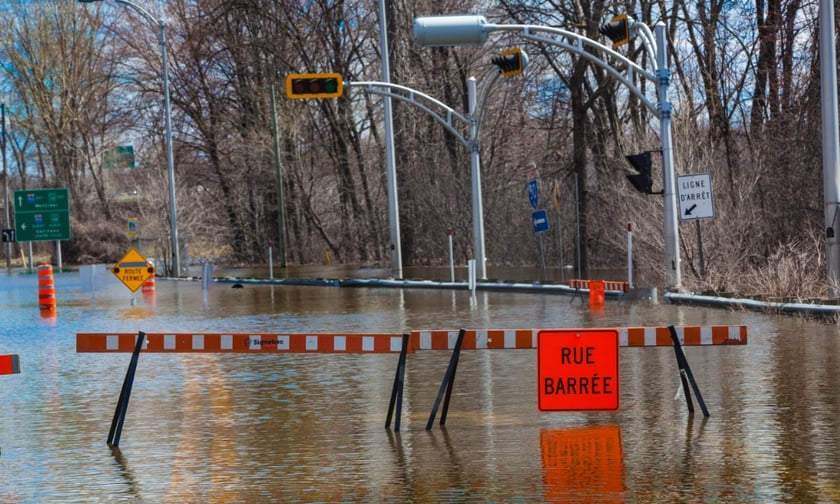

The Quebec Professional Association of Real Estate Brokers (QPAREB) is in the midst of an ongoing public consultation on the modernization of the regulatory framework governing wetlands and flood zones, highlighting the potential impacts of these changes, and proposing several measures to mitigate their effects – including those impacting insurance.
The revised flood zone mapping, now made public, is expected to significantly reduce the value of 77,000 properties, a sharp increase from the 22,000 previously affected. This drop in property value could, in turn, affect municipal tax revenues. Under the new mapping, the total value of properties in flood-prone areas is estimated to be approximately $18.4 billion.
For homeowners in these newly designated zones, selling properties may become more difficult. Even a low risk of flooding may deter potential buyers.
QPAREB’s Brokerage Practices Committee president Nathalie Bégin acknowledged the government’s efforts to address climate change impacts.
“However, it is crucial that mitigation and supportive measures be developed to support homeowners affected by the new mapping and to preserve property market stability. The government can continue to count on our complete co-operation in this regard,” she said.
The association’s recommendations include urging the Quebec government to provide financial assistance for homeowners in flood-prone areas. It also suggests requiring financial institutions and insurance providers to disclose their policies concerning flood zones.
Additionally, the QPAREB proposes the creation of a “resilience certification” system to recognize properties that have been retrofitted for flood protection, following recommendations by Professor Michel Leclerc of the Institut National de la Recherche Scientifique.
Finally, the QPAREB calls for a public awareness campaign to help homeowners understand the implications of the new flood zone regulations.
The QPAREB represents over 15,000 real estate brokers and agencies across Quebec. The association advocates for its members’ interests while addressing broader industry issues, including homeownership measures and market stability. It also provides market data, training, and resources to the real estate sector.
Read more: Insurers unable to cover for Quebec flooding
Readers are encouraged to share their thoughts on these new regulatory changes and their potential impact on property owners and the real estate market.
